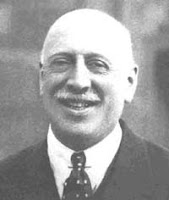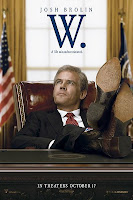
Today I am going to launch into a more detailed explanation of the economic system I proposed yesterday. If you have not read yesterday’s post, I strongly recommend it. Before I begin: for the purpose of convenience (my own), I have decided to dub the system I discussed yesterday “Applied Monetary Management,” or AMM. This name is somewhat appropriate, and it will spare me some lengthy sentences.
I would first like to discuss overproduction in more detail, since this is one of the central points I brought up yesterday. Overproduction is a condition in which a nation produces more products than it can consume. In a capitalist system, this is disastrous to the economy if the country suffering from overproduction cannot find an economically viable way to get rid of the excess. In most cases, though, the philosophy of “favorable balance of trade,” in which countries are encouraged to export more than they import, has countered overproduction in most cases. Today, the concept of foreign aid has been added to this as a way to alleviate overproduction. But where there are no more markets for the excess goods, prices plummet and the economy crashes. (This is what happened during the Great Depression—demand dropped because Europe could no longer afford to buy our goods and did not need war materiel, so the US was left with a surplus we were unable to get rid of.) According to C.H. Douglas, overproduction—or at least shortage of money—occurs naturally in capitalism. Douglas explained this idea in his A + B Theorem. In this proof, Douglas explained that a product’s cost is made up of two parts, A, the cost of wages to pay the employees who produce the product, and B, the cost of the materials (including land) needed to produce it. Thus, the price of the product must be A + B + C, where C is the profit. But how can the public possibly purchase all the products created if the collective purchasing power is equal to A when the collective price of all products is equal to A + B + C? The answer: they can’t. This is the rationale for Douglas’s Social Credit as well as for AMM—if more money is pumped into the economy, overproduction can be turned into an advantage rather than a liability.
Next, I would like to talk about taxation and investments in relation to my AMM system. Taxation is entirely useless, as it withdraws money from circulation. Since the national dividend is the opposite of taxation and the government can just print fiat money anyway, taxation is useless. Investments detract from the productivity of an AMM nation, since money used to buy insurance or invested cannot be used to purchase products. Thus, both of these would have to be discouraged and perhaps more strictly regulated (though not banned) in an AMM system.

I would also like to briefly touch on trade in an AMM system. As I mentioned yesterday, all trade is to be controlled by the government because of the fact that the AMM nation’s currency would probably be worthless elsewhere in the world. Thus, the government will use the barter system to get what it needs from other countries and foreign companies. Though this is somewhat cumbersome, it adds to the power of the government in terms of economic control, which is central to the success of the AMM system as a whole. This does make it difficult to travel to other countries, but this is a minor concern in the big picture.
I would now like to counter some of the standard arguments that are used against C.H. Douglas’s Social Credit, as many of them apply to AMM, the system I am proposing.
Firstly, I would like to counter the argument that AMM suffers because it is overly socialistic. Though it is true that the concept of the national dividend is somewhat socialistic, it does not make anyone’s job into a sinecure. As I briefly touched on yesterday, AMM accounts for the cultural factor that is often the downfall of socialistic systems: lack of incentive to work. Recall that the national dividend can be distributed either in a more socialistic way (more equal) or in a more capitalistic way (rewarding hard work). Also, remember that it is elected officials who determine how the dividend is doled out. Thus, whichever way the cultural pendulum swings, the distribution of the national dividend can account for it.
Secondly, I would like to further discuss the issue of hyperinflation. As mentioned in the paragraph above, AMM can account for the cultural factor present in the downfall of socialistic systems. Also (and perhaps more importantly) AMM creates perpetual, unlimited demand. This, in turn, creates more production, and hence more work. Also, remember that the government also controls prices to a certain extent. (This is one of the fundamental differences between AMM and Social Credit—Douglas proposes freezing prices, which he calls the “Just Price” system; I propose giving an option fiat money subsidy to lower prices. Companies would prefer to accept this, because not only ensures that they will be paid well for what they produce, but also because the lowered cost (coupled with the national dividend) ensures that they will not have excess goods.

Lastly, I would like to explain my apparent grudge against bankers and capitalists. As I discussed previously when talking about the automakers’ hearing in Congress, the self-declared motive of any capitalist is to seek wealth and personal gain. I am not begrudging selfishness as a personal philosophy, though; I see no problems with selfishness or egoism in general. The problem is that when a company or a few companies are the only major ones in their industry, the executives of those companies have an enormous social responsibility thrust upon them: they are now charged with ensuring the continued prosperity of that industry. But what have they done to earn this position? Though many hold that their ability to succeed in their industry is what qualifies them—however, this is only half true. Though having proficiency in running a company of a particular industry does qualify that person to manage the industry, it does not change the fact that that person is self-serving, not a public servant. Instead, controlling the direction of an industry (as opposed to directly managing it) is a job that should be taken up by the government, which serves the people.
I have also expressed my distaste for powerful privately owned banks and other financial institutions; I would like to explain my reasons for this as well. Banks and other financial institutions are among the most powerful organizations when it comes to determining the value of money; banks can even create money using fractional-reserve banking policies. This is dangerous because banks, like capitalist individuals, have selfish motives. To allow organizations with selfish motives to have so much power over the monetary system is clearly very dangerous. Instead, the government should ensure that it has the most control over the monetary system by forcing banks to utilize commodity money-based polices. Once again, since the government serves the people it is a far better candidate to control the value of money than a bank owned by a self-serving capitalist.
I would also like to discuss some of my influences and some recommended reading on this subject. For information on the economic philosophy of Social Credit, I recommend reading three of C.H. Douglas’s books, Social Credit, Economic Democracy, and Credit-Power and Democracy. Though these aren’t among the most gripping or entertaining books out there, they explain Douglas’s ideas and are very thought provoking. I would also recommend Robert A. Heinlein’s 1939 novel For Us, the Living, which is more of a lecture than a novel, in which Heinlein offers his own take on Douglas and applies to philosophy of Social Credit to culture.
**As a side note: Any real economists reading this are probably laughing at me. I have thus far failed to provide any hypothetical examples, case studies, or any other proof besides logic to back up my arguments. My theory is based mostly off of early 20th century thinkers rather than modern economics, which probably makes it obsolete. I admit, I am quite a neophyte as far as economics goes—this is mostly the reason I approached this problem from a philosophical standpoint rather than an economic one. But this theory is the best one I’ve got, and I suspect there is actually some validity something to it. In the future, I will do some research and try to provide some tangible proof for what I am saying.
Tomorrow I may or may not continue on this subject—I may decide to take a day off from it to discuss the global economic crisis instead, in particular President Obama’s recent speech.
 Today I am going to continue the discussion I had on Tuesday and Wednesday: my idea of an economic system, called Applied Monetary Management, that uses fiat money to create economic prosperity. If you have not read Tuesday or Wednesday’s posts, I strongly recommend doing so.
Today I am going to continue the discussion I had on Tuesday and Wednesday: my idea of an economic system, called Applied Monetary Management, that uses fiat money to create economic prosperity. If you have not read Tuesday or Wednesday’s posts, I strongly recommend doing so.
 On Tuesday President Obama spoke to Congress about the state of the economy. In this speech, he justified his economic stimulus plan and explained why America needs it. There are a few comments I have about the content and delivery of the speech that I would like to discuss.
On Tuesday President Obama spoke to Congress about the state of the economy. In this speech, he justified his economic stimulus plan and explained why America needs it. There are a few comments I have about the content and delivery of the speech that I would like to discuss.
 Today I am going to launch into a more detailed explanation of the economic system I proposed yesterday. If you have not read yesterday’s post, I strongly recommend it. Before I begin: for the purpose of convenience (my own), I have decided to dub the system I discussed yesterday “Applied Monetary Management,” or AMM. This name is somewhat appropriate, and it will spare me some lengthy sentences.
Today I am going to launch into a more detailed explanation of the economic system I proposed yesterday. If you have not read yesterday’s post, I strongly recommend it. Before I begin: for the purpose of convenience (my own), I have decided to dub the system I discussed yesterday “Applied Monetary Management,” or AMM. This name is somewhat appropriate, and it will spare me some lengthy sentences.

 I realize that today’s post is quite long. However, I think it makes up for this by being perhaps the most interesting blog entry I have ever written; I urge you to read it if you have the time. Today, as I promised yesterday, I am going to outline my own views on economics. I believe that an economic system can be analyzed by asking two key questions about it. I shall submit my own system to this analysis so as to best explain how it works and its moral justifications.
I realize that today’s post is quite long. However, I think it makes up for this by being perhaps the most interesting blog entry I have ever written; I urge you to read it if you have the time. Today, as I promised yesterday, I am going to outline my own views on economics. I believe that an economic system can be analyzed by asking two key questions about it. I shall submit my own system to this analysis so as to best explain how it works and its moral justifications.

 Unfortunately I was unable to write anything this weekend, as I was quite busy. However, I was only off for two days, which is really not that much in the big scheme of things, and two days is as close to a hiatus as my blog has ever come. But I have devoted this week to discussing topics related to economics, and for the next five days I am going to type out some very interesting posts. Today, the series on economics begins with a discussion of the legality of fiat money.
Unfortunately I was unable to write anything this weekend, as I was quite busy. However, I was only off for two days, which is really not that much in the big scheme of things, and two days is as close to a hiatus as my blog has ever come. But I have devoted this week to discussing topics related to economics, and for the next five days I am going to type out some very interesting posts. Today, the series on economics begins with a discussion of the legality of fiat money.
 Yesterday I saw Oliver Stone’s recent movie “W.” The film chronicles the life of George W. Bush from his early days to the decision to invade Iraq. The movie was quite entertaining—thought it was almost two and a half hours long, the interesting portrayal of Bush and his advisors kept it from being soporific. However, like some of Stone’s previous works, the film reeks of revisionist history. Stone deliberately inserted some of Bush’s more embarrassing quotes into the film, often out of context. He certainly took liberties in depicting the Bush family dynamic—several of the Bushes criticized the film for this, in fact. He also included several scenes featuring confidential meetings between Bush and his advisors—the details of these are obviously unknown, so it is clear Stone made them up for the film. Overall, the film definitely has something of an anti-Bush bias—George W. is portrayed as bumbling, clueless, and overly dogmatic.
Yesterday I saw Oliver Stone’s recent movie “W.” The film chronicles the life of George W. Bush from his early days to the decision to invade Iraq. The movie was quite entertaining—thought it was almost two and a half hours long, the interesting portrayal of Bush and his advisors kept it from being soporific. However, like some of Stone’s previous works, the film reeks of revisionist history. Stone deliberately inserted some of Bush’s more embarrassing quotes into the film, often out of context. He certainly took liberties in depicting the Bush family dynamic—several of the Bushes criticized the film for this, in fact. He also included several scenes featuring confidential meetings between Bush and his advisors—the details of these are obviously unknown, so it is clear Stone made them up for the film. Overall, the film definitely has something of an anti-Bush bias—George W. is portrayed as bumbling, clueless, and overly dogmatic.






 In the past I have mentioned my libertarian views on government in the social sphere and my firm belief in a complete separation of church and state. However, what many people do not realize is that even the most secular administrations in the US haven’t even come close to a true separation of church and state. I am disgusted that cultural and religious minorities are ostracized and prevented from practicing what they believe in. But that’s old news—if you are interested in hearing the long litany of government violations of the First Amendment, see
In the past I have mentioned my libertarian views on government in the social sphere and my firm belief in a complete separation of church and state. However, what many people do not realize is that even the most secular administrations in the US haven’t even come close to a true separation of church and state. I am disgusted that cultural and religious minorities are ostracized and prevented from practicing what they believe in. But that’s old news—if you are interested in hearing the long litany of government violations of the First Amendment, see
 The quote above comes from Orson Scott Card’s science fiction novel Ender’s Game
The quote above comes from Orson Scott Card’s science fiction novel Ender’s Game
 I realize I have been discussing a lot of Robert A. Heinlein's fiction on this blog, and I would like to justify it. I have a strong predilection for Heinlein's works, mostly because of his remarkable ability to blend philosophical topics and entertaining science fiction. After all, he did help found the genre of "classic" science fiction, and because of the nature of what he discusses in his works, Heinlein novels are the perfect topics for this blog. Anyway, on to business: today I would like to talk about some more of the political concepts Heinlein explores in Starship Troopers
I realize I have been discussing a lot of Robert A. Heinlein's fiction on this blog, and I would like to justify it. I have a strong predilection for Heinlein's works, mostly because of his remarkable ability to blend philosophical topics and entertaining science fiction. After all, he did help found the genre of "classic" science fiction, and because of the nature of what he discusses in his works, Heinlein novels are the perfect topics for this blog. Anyway, on to business: today I would like to talk about some more of the political concepts Heinlein explores in Starship Troopers
 Today I am going to discuss some of the philosophical aspects of Robert A. Heinlein’s Starship Troopers
Today I am going to discuss some of the philosophical aspects of Robert A. Heinlein’s Starship Troopers


 I have briefly discussed the concept of MAD, or mutually assured destruction, here on this blog before. To review: during the Cold War, the US and the USSR followed a policy of “deterrence”—they realized that MAD would occur if either side attacked the other, so they tacitly agree to not take military direction against each other. But, as the Cold War proved, there are many ways to work around the policy of deterrence and MAD, as well as flaws in the theory itself.
I have briefly discussed the concept of MAD, or mutually assured destruction, here on this blog before. To review: during the Cold War, the US and the USSR followed a policy of “deterrence”—they realized that MAD would occur if either side attacked the other, so they tacitly agree to not take military direction against each other. But, as the Cold War proved, there are many ways to work around the policy of deterrence and MAD, as well as flaws in the theory itself.
 Today’s post is very different from the philosophical topics I usually discuss here, but it is a somewhat pressing cultural issue so I believe it deserves mention.
Today’s post is very different from the philosophical topics I usually discuss here, but it is a somewhat pressing cultural issue so I believe it deserves mention.
 “Quiet! Your leader is going to speak now. Everyone turn off your mind.” –Chad Urmston
“Quiet! Your leader is going to speak now. Everyone turn off your mind.” –Chad Urmston
